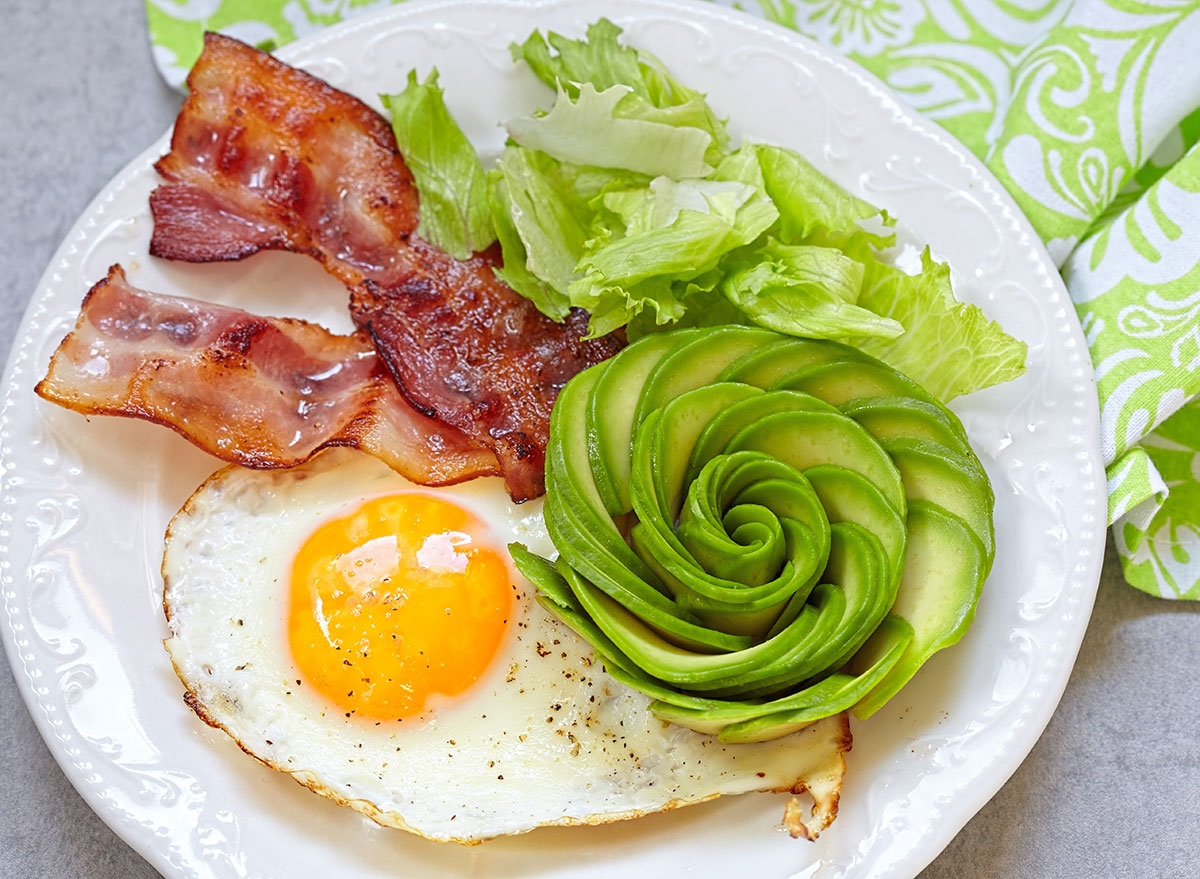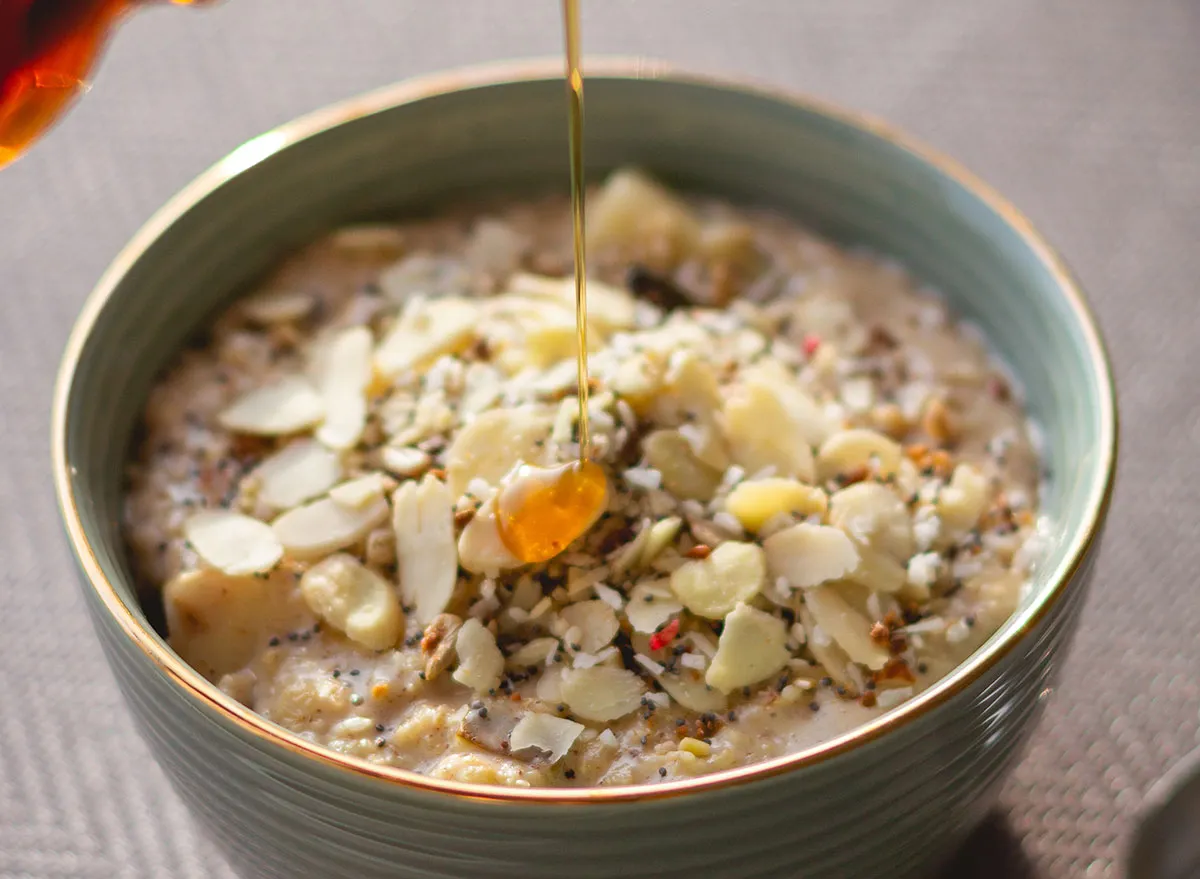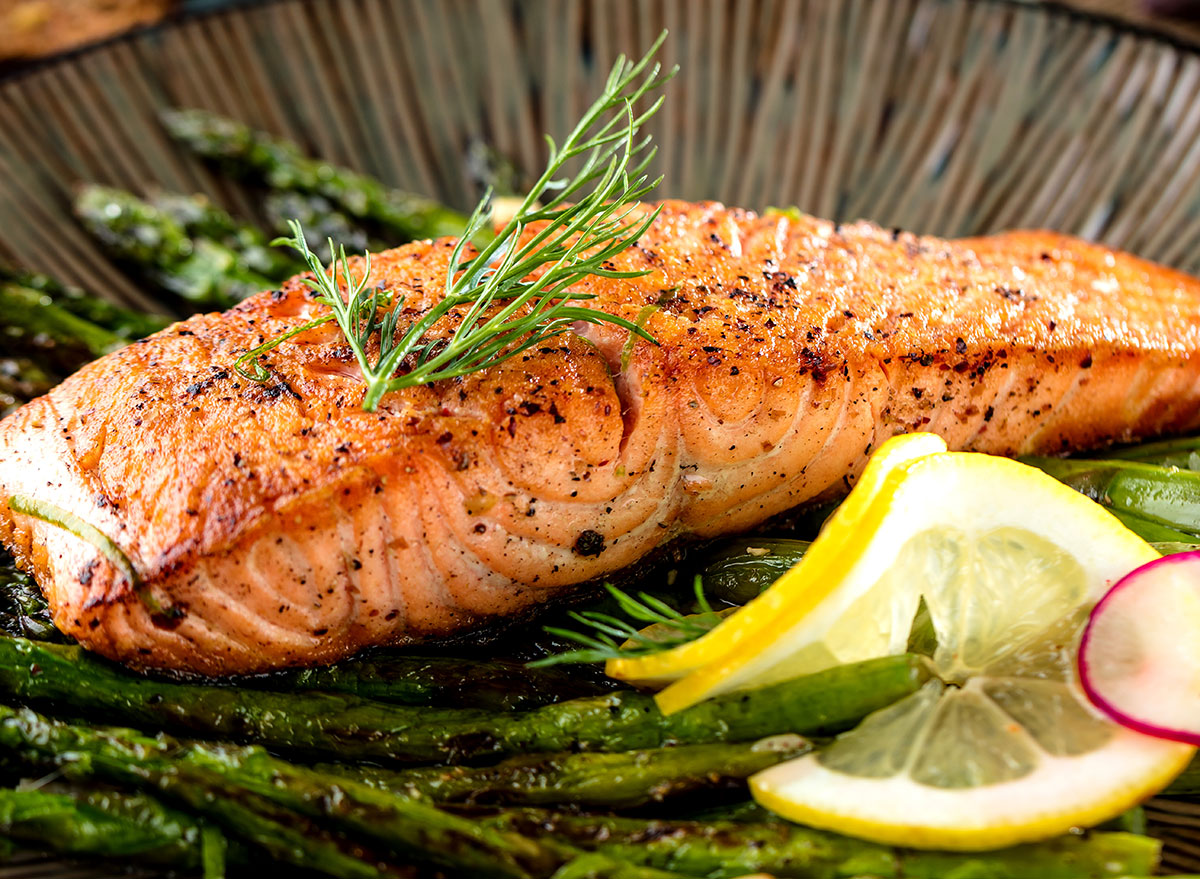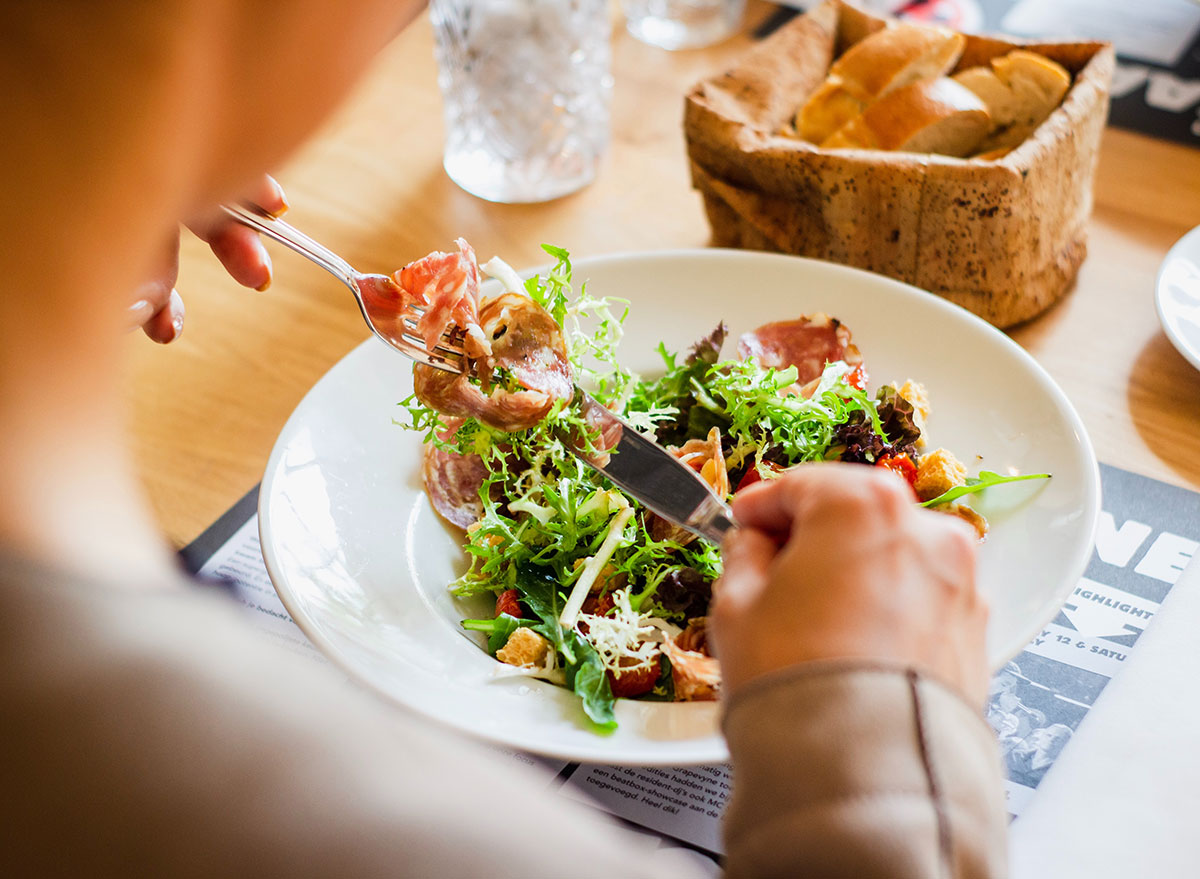These Eating Habits Are Wrecking Your Heart Health, Cardiologist Says
Sometimes even the most seemingly harmless habits can lead to serious health issues. For example, did you know that not getting enough sleep can lead to diabetes, or that eating while you're emotional or stressed can lead to weight gain or obesity?
When it comes to your heart health, the list of dangerous habits grows. We spoke with Dr. Juan Rivera, preventative cardiologist and Chief Medical Correspondent for Univision, as well as Sabrina Hernandez RDN, CDE, NC, and Lead Nutritionist at Entalla, to learn more about what it takes to have a healthy heart and the daily habits you may want to avoid.
Here are what they both believe to be the eating habits wrecking your heart health, and for more healthy eating tips, make sure to read The 7 Healthiest Foods To Eat Right Now.
Not researching the keto diet

Keto can help some people achieve their health goals, but it's important to research how to follow it correctly and talk to a professional to decide if it's the right diet for you.
"When keto is done inappropriately, people can end up eating a lot of saturated fat, which leads to an increase in LDL or bad cholesterol," says Dr. Juan, "and a high LDL is an independent risk factor for cardiovascular events."
If you decide to try keto, Dr. Juan suggests focusing on the "good fats" whenever you can, like fish, avocado, nuts, along with these 20 Healthy Fat Foods That Won't Make You Fat.
Eating too much ice cream

This goes for any dessert, not just ice cream, that is loaded with both sugar and fat because according to Dr. Juan, "these are both contributors to cardiovascular disease."
You don't have to give up your sweet cravings entirely, but Dr. Juan suggests "eating ice cream or decadent desserts only on special occasions or share it with your partner or friend."
Not eating enough fiber

Fiber is an important part of any diet, but it's especially crucial for taking care of your heart health.
"Fiber is a natural detox agent that your heart and colon rely on," says Hernandez. "It has also been shown to lower cholesterol and serve as prebiotics in your gut, which helps lead to a healthy heart and body."
The list of fibrous foods is long, but Hernandez suggests items like oatmeal, beans, apples, citrus, whole wheat, and carrots to name a few.
Mindless eating

Hernandez also points out that mindless eating, which is when you eat while you're distracted, can be bad for your heart health.
"When you are focused on your eating, you probably feel more in control," says Hernandez, "but emotions, stress, or a busy schedule can cause you to eat mindlessly and not take notice of what or how much you are consuming.
And while this doesn't equate to a problem 100% of the time, it can increase your chances of overeating or eating foods that are bad for your heart health.
Not getting enough cardio-protective foods

Cardio-protective foods are the ones that are good for your heart health, so Hernandez suggests incorporating as many of these into your daily diet as you can.
"Everyone is busy and in a rush these days, so taking a few minutes on Sunday or Monday to get prepared and take a list of heart-healthy foods to the store will make it easier to eat them throughout the week since they'll be readily available," says Hernandez.
There are plenty of cardio-protective foods to choose from, but some of Hernandez's favorite choices are salmon, flaxseed, avocado, fruit, nuts, and seeds.
"I love preparing grab-and-go mini-meals like a mixed veggie quinoa bowl, veggies and guacamole, or smoked salmon on a piece of high-fiber toast," says Hernandez.
Eating too many calories

Eating too many calories can wreck your heart health, even if the calories are from "healthier" foods.
"Excessive calorie intake must be stored somewhere, so when your storage reaches full capacity, it wreaks havoc on the body," says Hernandez, "and the excess calories that are not needed start circulating in the bloodstream, which is when you see elevated cholesterol and triglycerides."
Hernandez adds that even though people think sugar, refined carbohydrates, and fatty foods are the only culprits, too much of any food, even broccoli, salmon, or quinoa, can lead to over-storage if too much is consumed.
Get even more healthy tips straight to your inbox by signing up for our newsletter! After, read these next:
- One Major Effect Cashews Have On Your Heart, Studies Say
- Simple Ways to Avoid a Heart Attack, According to Doctors
- Drinking This Daily Could Prevent Major Heart Complications, New Study Says









